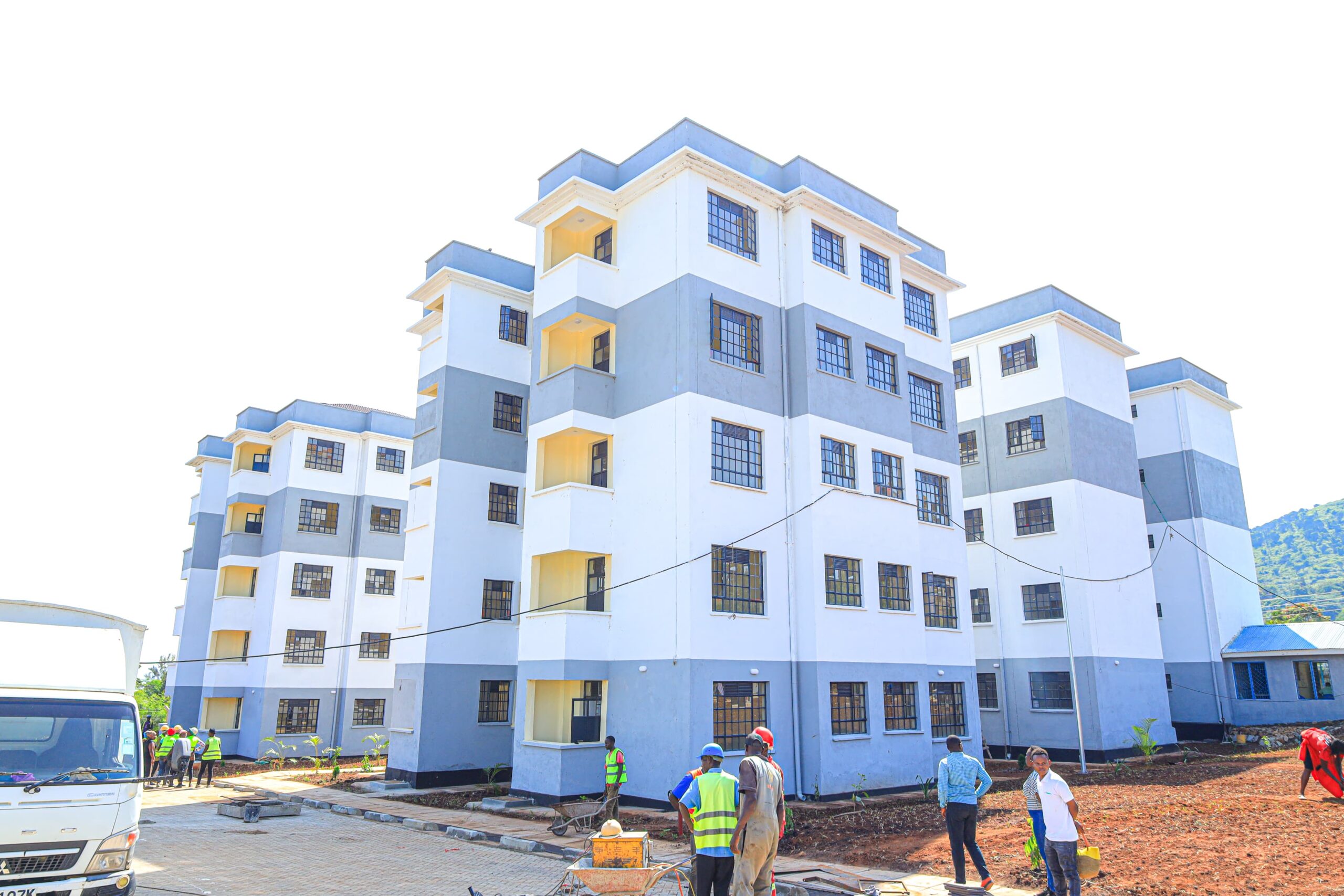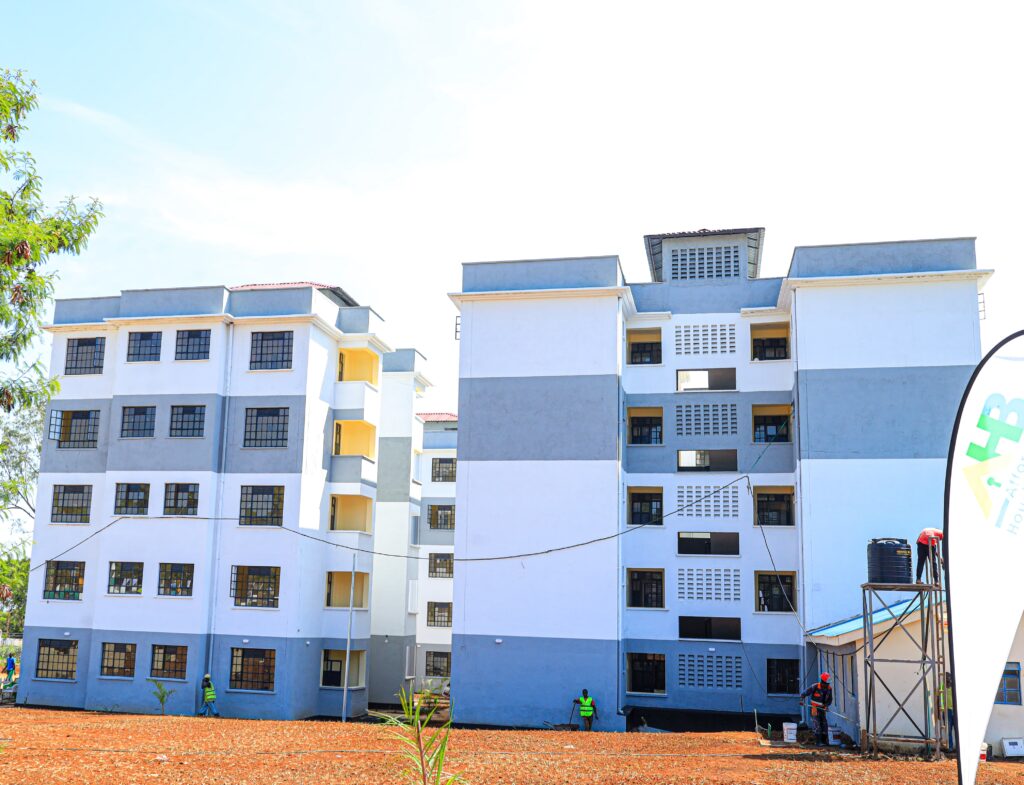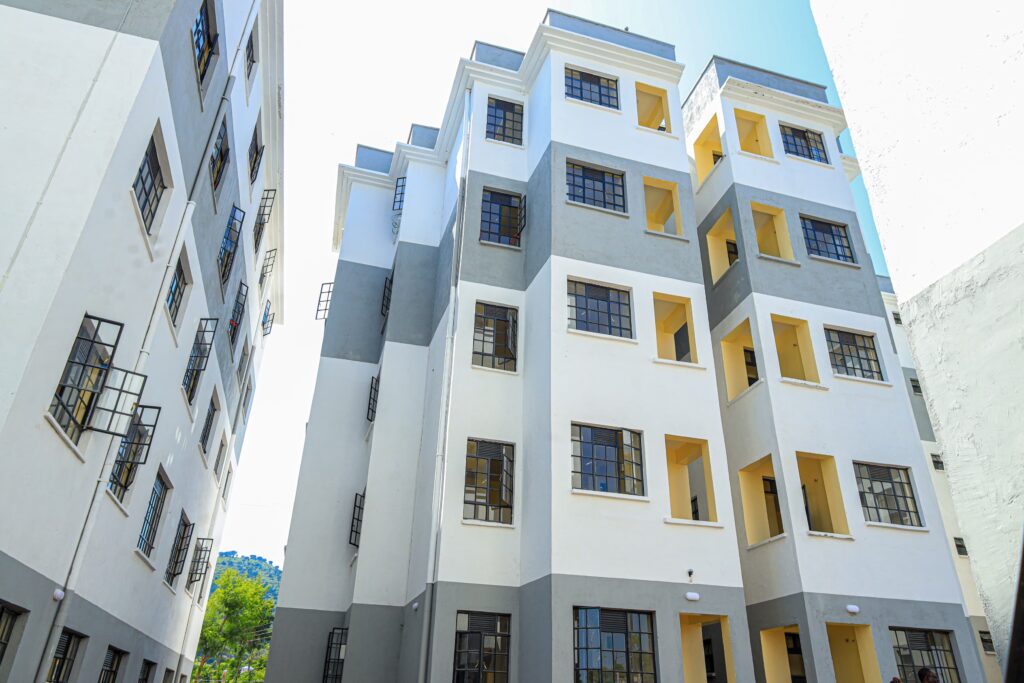
Homa Bay Boma Yangu Estate becomes Africa’s first EDGE-certified green building » Capital News
HOMA BAY, Kenya May 29 – The Homabay Boma Yangu Estate is the first building in Africa to receive the Excellence in Design for Greater Efficiency (EDGE) certification, a prestigious recognition for green building standards.
Located a few kilometres from Homa Bay town along the Homa Bay-Kendu Bay road, the Affordable Housing project is now complete, just under two years after its launch.
It is set to be handed over by President William Ruto on Friday during his tour ahead of Madaraka Day celebrations.
The EDGE certification recognises the estate’s smart design features such as optimal building orientation, window sizes, and floor-to-floor height, which maximise natural lighting. This means tenants can rely on daylight during the day, reducing electricity use.

In addition, the design promotes excellent ventilation—particularly important in Homa Bay’s warm climate—reducing the need for fans or air conditioning.
The certification also reflects the project’s environmental benefits, including expected energy savings of 27–30%, water savings of 32–37%, and embodied energy savings between 52–62%.
The Homa Bay Affordable Housing Project is a partnership between the National Housing Corporation (NHC) and Homa Bay County Government. It aims to build 2,000 affordable housing units on an 11-acre site in Makongeni, Homa Bay Town.
The first phase, consisting of 110 units, is now complete. President Ruto will hand over keys to the new homeowners who have successfully applied for allocation.
Bernard Ojijo, a mason at the site, said the project has provided employment for many youths, contributing to a decline in crime and drug abuse as workers remain productively engaged.

His views were supported by Justus Mwangangi, a painter, who praised the government for projects like this, which enable workers to provide for their families and grow their skills in the construction sector.
The first phase includes 38 two-bedroom houses, 40 one-bedroom units, 30 studio apartments, and two studio-cum-shops.
Engineer Thomas Ofwa highlighted that the estate features solar-powered lighting in common areas and streets, and uses tap aerators in sanitary fittings to reduce water consumption.
He added that the project has been a blessing to Homa Bay residents, with approximately Ksh 11 million paid to local jua kali artisans for supplying doors and windows, and Ksh 1 million given to local women’s groups for landscaping services.
In total, about 2,000 skilled and non-skilled workers from the local community were employed throughout the project’s lifecycle.